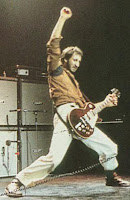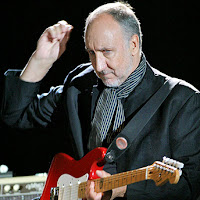- More than 80 percent of all
respondents were interested in learning about new music from artists
they were already fans of, and 60 percent were interested in learning
about unfamiliar artists in genres that they usually buy.
- AM/FM radio
and family/friends/coworkers are the most common avenues for discovery,
and discovery via online radio and
- Web videos were also important for
the most active music fans.
- Free online radio, video sites like
YouTube and Vevo, and other emerging forms of influence are more likely
to cause listeners to continue to stream songs, rather than buy them.
- Music recommendation from family, friends and co-workers are also very important, as they always have been.
What's more, the report breaks down music consumers into
five segments:
Committed: the youngest group, with a mean age
of 32 (20 percent are age 13 to 17; 42 percent are 18 to 35). They
represent 10 percent of all consumers who listened to or purchased music
within the prior three months. “Committed” consumers also account for
46 percent of per-capita spending on music, and they are the most
engaged consumers in the report. While they use a variety of discovery
sources – including radio, video, streaming, and movies – they also
value ownership, and they are the most open to discovering new artists.
They find their current means to discover new music is good, but still
wonder if they are missing something.
Convert: makes up 30 percent of musically active consumers and
accounts for 34 percent of per-capita spending. They're the second youngest
group, with a mean age of 34 (13 percent teens; 23 percent are 18 to 25
years old). They also listen to music in a variety of ways and are more
likely than the average consumer to purchase CDs or digital downloads.
They are generally satisfied with their means of music discovery, but
they would still consider other options.
Comfortable: makes up 30 percent of musically
active consumers and account for 15 percent of per-capita spending on
music. With a mean age of 50, they are considered the mainstream
segment. These individuals mostly listen to music on CD or on AM/FM
radio, and they prefer to discover new music from familiar artists. They
also rely primarily on television and radio to find new music, and they
feel those methods are adequate for their needs; they are not
interested in new ways to discover music.
Casual: makes up 14 percent of musically active
listeners and account for 3 percent of per-capita music spending, and have a
mean age of 43. They are also lighter listeners than average, they
rarely buy music, and they have low interest in digital sources and
discovery.
Content: makes up 11 percent of musically active
consumers and accounts for 2 percent of per-capita music spending, have a
mean age of 55. They are the lightest buyers and listeners, and while
they periodically buy CDs, they do not find current music engaging.
Another interesting thing that the study found is that television has emerged as the second-most
influential tool for music discovery, with 49 percent of musically
active consumers citing it as a top influence. Television is
particularly effective for targeting the mainstream “Comfortable” group,
as well as women and brick-and-mortar store shoppers. Awards shows,
music videos, competition shows, daytime TV, and serial shows are the
programs most likely to be effective for music discovery.
But guess what? Television was trumped by AM/FM radio, which continues to remain as the most important tool
for music discovery, with 60 percent of musically active consumers
citing it as a top influence.
While radio and TV were the clear-cut top traditional choices for
music discovery, Internet music-discovery options are much more
fragmented.
Shazam and other song-ID apps, as well as other
mobile/tablet apps, are most likely to lead to high-value actions, like
paying for a CD or digital download.
What's the upshot? Some things never change, and that includes the way we discover music. What is changing is that now we have more sources and which groups uses those additional sources. Once again, conventional wisdom is set on its ear.
-----------------------------------
You should follow me on
Twitter for daily news and updates on production and the music business.





